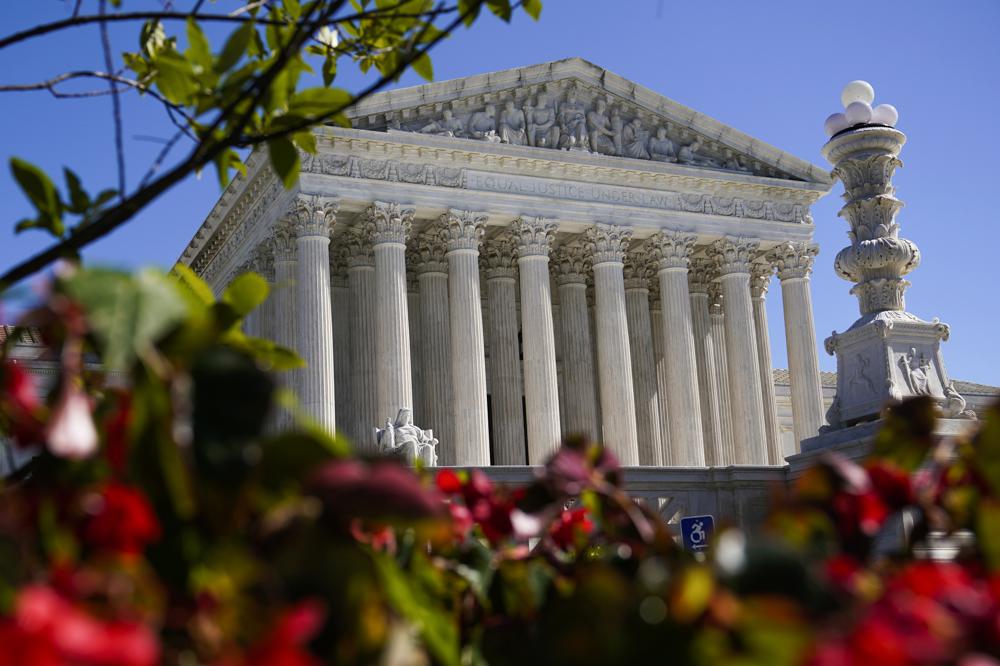Gov. Kay Ivey says Huntsville is only rightful place for Space Command

On Tuesday, Governor Kay Ivey commended the House Armed Services Committee’s investigation into why President Joe Biden may overrule the Air Force decision to move Space Command to Red Stone Arsenal in Huntsville. Ivey reiterated her claim that it is a blatant fact that Huntsville is the rightful home for the Space Command Headquarters. “Alabama is eager for our country to win the space race, not slow walk our way there,” said Ivey. “Let me repeat what everyone already knows: Alabama is the only rightful home for Space Command Headquarters, and supporting this mission is critical to the advancement of our national security.” “Last week, our bipartisan Alabama delegation brought to light concerning details regarding the permanency of Space Command Headquarters,” Ivey continued. “On what dimension would we not have a permanent headquarters for a major arm of our national security? There are many questions that must be answered, and I commend Chairman Rogers, Representatives Strong and Sewell, as well as the entire U.S. House Armed Services Committee for launching this investigation.” U.S. Representative Mike Rogers (R-AL03) is the Chairman of the House Armed Services Committee. Rogers sent a letter to Lloyd Austin, Secretary of the Department of Defense, and Frank Kendall, Secretary of the Department of the Air Force, requesting the department to preserve all documentation concerning the selection of a location for the U.S. Space Command (SPACECOM) Headquarters. In the letter, Chairman Rogers expressed concern regarding continued delays due to possible interference from the Biden Administration. “The Air Force’s deleterious actions concerning the selection of a location for SPACECOM Headquarters require the Committee to now seek document preservation in this matter,” Rogers said. “Air Force officials have continued to delay finalizing the move of SPACECOM Headquarters to Redstone Arsenal in Huntsville, Alabama, in response to apparent politically motivated interference by political appointees in the Biden Administration.” Chairman Rogers continued, “The U.S. Space Force’s overall mission and success requires a swift decision on finalizing the move. The move is severely delayed at this point, over two years beyond the point when Air Force made the right decision after scrutinizing multiple locations and considering multiple factors to locate SPACECOM Headquarters in Huntsville, and over a year since the GAO and the DOD Inspector General affirmed Air Force’s decision. Moving expeditiously to locate SPACECOM Headquarters at Redstone Arsenal is in our country’s best national security interests.” “Alabama – in every way – is staunchly committed to seeing this mission through,” said Gov. Kay Ivey. “And everyone agrees because the facts are undeniable that Redstone should, can, and will be home to Space Command Headquarters. Secretary Kendall and General Dickinson, I am ready to join you at Redstone Arsenal very soon to officially welcome the HQ to Alabama.” “The Air Force closely scrutinized multiple locations based on multiple factors to decide where Space Command Headquarters should be, and Huntsville was the indisputable winner in both the Evaluation and Selection phases,” said Congressman Dale Strong (R-AL05). “The fact is that Redstone Arsenal offers the best possible location for Space Command Headquarters, and it is in our country’s best national security interest to make this move immediately.” There is a report by NBC News that President Biden will overrule the Air Force decision and instead order Space Command headquarters to remain in Colorado. This is widely viewed as a political calculation as the President faces re-election next year, and Colorado voted for him. In contrast, Alabama has not backed a Democratic presidential candidate since 1976. To connect with the author of this story or to comment, email brandonmreporter@gmail.com.
House passes right to parenting legislation

On Wednesday, the Alabama House of Representatives passed legislation to recognize that Alabama parents have a fundamental right to make decisions on how they raise their child. House Bill 6 (HB6) is sponsored by State Representative Kenneth Paschal (R-Pelham). “HB6 is a commonsense bill,” Paschal said on the floor of the House, defending his legislation. “HB6 is a focus on two principles: God and Country.” “Parental rights are related to the noble duty of parents to raise their children,” Paschal said. “Parental rights are natural rights that cannot be taken away by any form of government.” Paschal was the President of the Alabama Family Rights Association (ALFRA) before being elected to the House of Representatives in a special election. “The child is not the mere creature of the state,” Paschal said. On Wednesday, the House voted to table the committee substitute version of the bill. The bill was instead amended. Paschal accepted the amendment as friendly. The amendment included the following: Removal of the references to “fit” and “custody.” “HB6 shall only be construed as applying to disputes between parents and the government or third parties and does not modify the law as to disputes between parents.” Paschal previously presented House Bill 6 on the floor a few weeks ago. Paschal, the lone African American lawmaker elected as a Republican in over 130 years, was attacked by Democratic lawmakers. One Representative, Juandalynn Givan of Birmingham, went over the line when she referenced a song by the sometimes-divisive performer Jay-Z to make a racial smear of Paschal, calling him the N-word by using the lyrics of the song – The Story of O.J. The incident was condemned by Republicans statewide. Paschal’s bill was carried over at the call of the chair at that time, but it was brought back on Wednesday late in the session while there was still time for it to be considered by the second House before the session ends. HB6, as amended, passed the House by a vote of 87 to 8. The bill now goes to the Senate for their consideration. It was assigned to the Senate Children and Youth Committee, where it was given a favorable report on Thursday. The Alabama House of Representatives will meet on Wednesday at 1:00 p.m. for Day 28 of the 2023 Alabama Legislative Regular Session. The Constitution of Alabama limits the legislative session to thirty days. A previous version of this article mistakenly quoted from the tabled substitute version of HB6. That language was not included in the engrossed version that passed the House. To connect with the author of this story or to comment, email brandonmreporter@gmail.com .
Alabama state waters open for shrimping on June 1

The Marine Resources Division (MRD) of the Alabama Department of Conservation and Natural Resources (ADCNR) announced that shrimp season will open on Thursday. As of 6 a.m., Thursday, June 1, 2023, all inside waters not permanently closed by law or regulation will open for shrimp harvesting. This includes Mobile Bay, Bon Secour Bay, Mississippi Sound, Perdido Bay, Arnica Bay, Wolf Bay, and Little Lagoon. Licensed live bait dealers holding a permit for Special Live Bait Areas are reminded that an area beside the Battleship Alabama south of the Tensaw River Bridge, north of a line from the north point of Pinto Pass (N30 40.755 – W88 01.124) to the northwest edge of Goat Island (N30 40.124 – W88 00.784); and west of a line from the northwest edge of Goat Island to the eastern end of Tensaw River Bridge (N30 40.955 – W88 00.444) will be open from one hour before sunrise until sunset from June 1-December 31, 2023. Closing state waters for a week is an annual occurrence to allow the young shrimp time to grow. Shrimp are often used as bait for other marine species, such as fish. Many marine species rely on shrimp for their sustenance, Special Live Bait Area Permits may be purchased only at the MRD office on Dauphin Island. For more information, call (251) 861-2882. Shrimp, crabs, lobsters, and crayfish, are a species of invertebrates known as decapods. There are about 2,000 species of shrimp in the world. There are 15 to 22 species of shrimp in Alabama waters. Three of these are harvested by humans: the brown shrimp, the white shrimp, and the pink shrimp. The brown shrimp is by far the most abundant. The pink shrimp is the least abundant of the three. Alabamians harvest approximately 20.5 million pounds of shrimp with an estimated dockside value of $45 million. Alabama is a sportsmen’s paradise with harvestable quantities of shrimp, oysters, crayfish, croaker, flounder, red snapper, drum, whiting, sea bass, deer, squirrel, rabbit, turkey, crappie, largemouth bass, smallmouth bass, nutria, hogs, coyotes, crows, alligators, cranes, ducks, geese, raccoons, and much more. Alabamians can hunt and fish for something legally year-round. Alabama residents and guests outside the state can purchase saltwater, freshwater, and hunting licenses. All proceeds from the sale of the licenses go toward wildlife conservation. The Alabama Department of Conservation and Natural Resources promotes wise stewardship, management, and enjoyment of Alabama’s natural resources through four divisions: Marine Resources, State Lands, State Parks, and Wildlife and Freshwater Fisheries.ADCNR promotes wise stewardship, management, and enjoyment of Alabama’s natural resources through four divisions: Marine Resources, State Lands, State Parks, and Wildlife and Freshwater Fisheries. To connect with the author of this story or to comment, email brandonmreporter@gmail.com.
Rep. Barry Moore urges USDA to help restore Chinese poultry market access

Last week, Rep. Barry Moore, Rep. Abigail Spanberger (R-Virginia), and 41 Members of Congress, including House Agriculture Committee Chairman Glen Thompson, led a letter to Agriculture Secretary Tom Vilsack and U.S. Trade Ambassador Katherine Tai urging the General Administration of Customs China (GACC) to engage with the United States Department of Agriculture (USDA) Animal Plant and Health Inspection Service (APHIS) and to honor their 2020 trade agreement by restoring market access to states who followed agreed upon Highly Pathogenic Avian Influenza protocols. These affected states include 158 poultry processing and cold storage facilities and represent 43 percent of boiler production in the United States. “Poultry producers are under pressure not only to protect animal health but market health, too. American producers bet on reliable trading partners, and China is not holding up their end of the deal,” said Rep. Moore. “I urge Secretary Vilsack and Ambassador Tai to engage with their Chinese counterparts and encourage them to honor the 2020 agreement and restore American market access.” Congressman Glenn Thompson is the Chairman of the House Committee on Agriculture. “Trade is one of our most valuable tools to stimulate the economy, and China’s disregard for existing regionalization protocols is negatively impacting our poultry industry,” said Rep. Thompson. “Our nation’s growers follow long-standing guidelines to ensure the health and safety of poultry products. The Biden Administration must engage with the GACC to uphold our trade agreements and reopen this critical export market for U.S. poultry.” Commercial Poultry in Alabama generates more than $15 billion in revenue annually. It accounts for 65.6% of annual farming revenue in the state and employs more than 86,000 Alabama workers on farms, processing plants, and allied industries. The U.S. shipped about $732 million worth of broilers to Chinese buyers in 2020. That’s about 21% of total U.S. exports worldwide. Many of those chickens were raised in Alabama. In 2021, China imported $3.1B in Poultry Meat, becoming the world’s largest importer. China imports Poultry Meat primarily from Brazil ($1.27B), the United States ($908M), Thailand ($327M), Russia ($250M), and Argentina ($137M). Cutting off that market, especially with high input prices for feedstuffs and energy, could negatively impact Alabama poultry farmers. Barry Moore is in his second term representing Alabama’s Second Congressional District. To connect with the author of this story or to comment, email brandonmreporter@gmail.com.
Supreme Court to rule soon on Alabama Congressional Districts

Alabama’s Congressional Districts could be thrown into chaos in the coming weeks if the U.S. Supreme Court upholds a lower court decision in a case challenging the 2021 congressional redistricting by the Alabama Legislature. The Supreme Court decision in the case of Milligan versus Merrill will be announced in the next few weeks. This decision could have a wide-ranging impact on when states must draw minority-majority districts. The plaintiffs claim that since Blacks are over 27% of the population of Alabama, the Legislature should have drawn two majority-minority districts, not one (Alabama’s Seventh Congressional District). A federal three-judge panel ruled for the plaintiffs and ordered the Legislature to redraw the districts. The state appealed to the U.S. Supreme Court, which voted 5 to 4 to stay the lower court decision until they hear and decide the case. Alabama Attorney General Steve Marshall said that the Supreme Court granted the State’s motion, allowing the Alabama Congressional District map as drawn by the Legislature in November to stand for now. “I’m gratified that the Supreme Court has stepped in to halt the district court’s order, which would have resulted in a congressional map that would have unconstitutionally divided Alabamians based on race,” Marshall stated. “As we have explained throughout this litigation, Alabama’s 2021 plan is an ordinary plan that looks much like the plan approved by a federal court in 1992, the plan approved by a majority-Democratic legislature in 2001, and the plan approved by a majority-Republican legislature in 2011. “Plaintiffs demand a significant overhaul to the map to create a second majority-Black district, but their own experts showed that no such map could be drawn unless traditional race-neutral principles took a back seat to voters’ race,” Marshall explained. “Indeed, one expert used her algorithm to draw two million random versions of Alabama’s map based on race-neutral principles, and not a single one had two majority-black districts. That is why each of the plans proposed by Plaintiffs would split Mobile County for the first time ever, to join voters in Mobile with voters as far away as Phenix City, based on race, all while dividing long-recognized communities centered on the Gulf Coast’s unique economy and culture.” The lawsuit challenging the map was brought by Evan Milligan, Khadidah Stone, Letitia Jackson, Shalela Dowdy, Greater Birmingham Ministries, and the Alabama State Conference of the NAACP, who are represented by the NAACP Legal Defense and Educational Fund, Inc. (LDF), the American Civil Liberties Union (ACLU), the American Civil Liberties Union) of Alabama, Hogan Lovells LLP, and Wiggins, Childs, Pantazis, Fisher & Goldfarb. Civil Rights groups are concerned that the opinion could further narrow the Voting Rights Act, similar to the landmark decision in Shelby v. Holder, which found that the preclearance section of the Voting Rights Act was an arcane measure that had no relevance in the modern world. As a result of the landmark Shelby v. Holder decision, the 2021 redistricting was the first in the state of Alabama in decades that did not have to get preclearance from the U.S. Department of Justice. A victory for the state of Alabama could give state legislatures nationwide more flexibility in how they draw their districts. A strong for the plaintiffs could impact districts beyond Alabama and spark more lawsuits as the two political parties use the courts to gain advantage over the other. On November 2022, six Alabama congressional incumbents (5 Republicans and 1 Democrat) easily sailed to re-election with little drama in districts that look much like how their districts were drawn a decade ago. Alabama congressional Republicans held on to the open Fifth Congressional District. No Alabama congressional district has flipped parties since the Second Congressional District flipped from Democrat to Republican control in 2010. Then Montgomery City Councilwoman Martha Roby defeated incumbent Congressman Bobby Bright. That was also the last time that an Alabama Congressional incumbent lost re-election. The decision is due before the end of June. To connect with the author of this story or to comment, email brandonmreporter@gmail.com.
Daniel Sutter: Tasks and jobs

Economists think about jobs in a seemingly counterintuitive way. While noneconomists see job creation as a primary goal, economists view labor as a scarce resource to be conserved. This leads to differences of perspective on everything from government incentives to businesses to the impact of automation, including artificial intelligence (AI). To understand the economic perspective, think about all the various things you want in life. A house or apartment to live in, food to eat, clothes to wear, and things to do for enjoyment. These things require tasks to be done. Houses must be built, clothes made, and food grown, transported, and prepared. Someone must do these tasks, and you must pay for those done by others. Consequently, working to earn money to pay others is itself an important task. Your “to-do” list quickly becomes overwhelming since there are only 24 hours in a day. This is scarcity, which means our wants and desires exceed our ability to satisfy them. Winning the Powerball jackpot will not solve these problems since consumption takes time. Even if cost is not an issue, you will never eat in all the world’s restaurants. Automating one or several tasks clearly improves life. Robot vacuums, riding lawnmowers, and clothes washers and dryers save time. They make life better, provided that earning the money to buy them does not take more time than they save. Further automation makes us even better off. A self-driving lawn mower is better than a riding mower, and a self-driving mower for $50 is better. We also benefit from automating the tasks others do for us. A sewing machine leads a tailor to sell us clothes for less. The logic applies down the line. If a restaurant pays less for food because of labor-saving agricultural innovations, they will charge less for meals. Time is the ultimate scarce resource. The best measures of cost of living over time convert prices into the work time required for purchase. HumanProgress.org calculates, for example, that a Frigidaire refrigerator cost 218 hours of work in 1956 versus 17 hours in 2022. Our biggest economic challenge is getting the most productive work possible out of the available labor. Not just doing tasks quickly but prioritizing the most important ones. The labor market performs this through wages and salaries. A business unable to perform tasks quickly, say a lawn maintenance company not using riding mowers, will have high costs and be unprofitable. A worker’s earnings are the market’s admonishment to only use scarce labor only for sufficiently valuable tasks. The more intuitive view celebrates job creation and mourns business closures. This view emerges from how we, as employees, experience the labor market. An economy based on specialization and the division of labor offers unprecedented prosperity but requires us to trade with others, and by implication that we work for a living. We respond by specializing, that is, finding a task that others will pay for and learning to do this task well. We typically select jobs relying on our talents and abilities. Increasingly we can find tasks we enjoy doing, making work not seem like work. A market economy offers no guarantees of employment. Automation, or what economist Joseph Schumpeter called creative destruction, can always render our job market skills obsolete. We fear our skills no longer being in demand. Research, not surprisingly, documents the significant, adverse health and mental health impacts of unemployment. The two perspectives on jobs lead to contrasting interpretations of events, like the automation of tasks by AI. From the scarcity perspective, this improves life – we can get more tasks done. But the automated tasks provided jobs people had honed their skills to perform. AI and creative destruction involve a fundamental tradeoff between the economies of yesterday and tomorrow. We will never accomplish all our tasks, but it can be difficult to foresee how the tasks automation lets us perform will translate into good-paying jobs. Daniel Sutter is the Charles G. Koch Professor of Economics with the Manuel H. Johnson Center for Political Economy at Troy University and host of Econversations on TrojanVision. The opinions expressed in this column are the author’s and do not necessarily reflect the views of Troy University.
Alabama lawmakers approve budget after disagreements on local projects

Alabama lawmakers on Friday gave final approval to general fund spending bills after sometimes tense disagreements over local projects and budget projections. Lawmakers worked through the night before giving final passage to the spending bills shortly in the early hours of Friday morning. “This is not the best that there ever has been, but it’s the best we can get to this evening,” said Sen. Greg Albritton, the chairman of the Senate Finance and Taxation General Fund Committee. Legislators gave final approval to a $3 billion general fund budget for the fiscal year beginning in October and a supplemental spending bill for this year. The bills now go to Alabama Gov. Kay Ivey. Sharp disagreements had emerged over funding for special projects, with some lawmakers saying their districts had been neglected. “It’s the poorest region of the state, and not one whole million dollars went to West Alabama,” Senate Minority Leader Bobby Singleton said. Lawmakers from Montgomery successfully fought to restore some funding for a gateway project to improve the area around Maxwell Air Force Base. Sen. Will Barfoot said the base is the “lifeblood of Montgomery.” Lawmakers had also disagreed over how much to spend in the upcoming fiscal year because of concerns about a possible economic downturn. The approved spending plan is about $10 million less than a House-passed plan. Republished with the permission of The Associated Press.
Investment standards debate moves into state legislatures

Environmental, social, and governance investment standards are a hot topic among Republican lawmakers across the U.S., who see it as a political move to force a progressive agenda. Democrats, on the other hand, see it as a smart investing strategy. Oklahoma is the latest state to attract national attention to ESG investing, even though the Legislature passed a bill regarding it last year. State Treasurer Todd Russ published a list of 13 financial institutions banned from doing business with the state of Oklahoma earlier this month because of their ESG policies regarding fossil fuels. Those 13 companies have 90 days to tell the state it has stopped boycotting energy companies. And if they haven’t stopped their boycott, the law grants the state six months to divest itself of 50% of investments with the financial company and a full year to divest 100%. In Tennessee, Gov. Bill Lee signed a bill that prevents the state’s treasurer from investing state funds based on ESG. The bill’s fiscal note states it will not significantly impact state or local revenues. Some Republican states are raising concerns and sometimes rejecting bills banning ESG-related policies. The North Dakota House of Representatives rejected a bill that would have required the North Dakota Department of Financial Institutions to monitor banks for ESG policies. The bill would have cost the state about $1.7 million, with most of that going to salaries for additional bank examiners. The Arkansas Legislature also discussed possible fiscal implications when discussing a bill similar to Oklahoma’s, requiring the state to divest from financial institutions with ESG standards. The treasurer would also have to maintain a list of those financial institutions. Gov. Sarah Huckabee Sanders signed the legislation. Fiscal concerns have not deterred every state from opposing ESG standards. Indiana Gov. Eric Holcomb signed House Bill 1008, which prohibits the board of trustees of the Indiana public retirement system “from making an investment decision with the purpose of influencing any social or environmental policy or attempting to influence the governance of any corporation for nonfinancial purposes.” It also requires the pension board to make investment decisions “solely in the financial interest of the participants and beneficiaries of the system for the exclusive purposes of providing financial benefits to participants and beneficiaries and defraying reasonable expenses of administering the system.” This despite concerns the state could lose $6.7 billion in investments. Utah Attorney General Sean Reyes, Alabama Attorney General Steve Marshall, and Illinois State Treasurer Michael Frerichs testified before the U.S. House Oversight Committee earlier this month. Frerichs told the panel that ESG was simply data used to make investment decisions. Treasurers and comptrollers from Colorado, Connecticut, Delaware, Massachusetts, New York City, Oregon, Vermont, and Washington state issued a statement backing Frerichs’ testimony. “The truth is simple. More data on risk leads to stronger returns for retirement accounts over the long term,” they said. “Ignoring risks to focus on short-term gains is not aligned with the needs of millions of Americans saving for retirement or their families’ education. But it is aligned with a short-term outlook to boost corporate profits. That’s why we’re hearing such loud and manufactured outrage against responsible investing.” While Republicans are banning financial institutions with ESG investment standards, Democratic-controlled states are embracing policies. New York lawmakers are considering a bill establishing a Green New Deal task force. The task force would develop a “detailed statewide, industrial, economic mobilization plan for the transition of the New York economy to become greenhouse neutral by 2030.” One of the bill’s goals is to promote “economic and environmental justice and equality.” Washington state lawmakers are considering a bill that would require “the state investment board publicly report on the climate-related financial risk, social responsibility, and proxy voting and corporate governance policies within its private and public market portfolios, including the alignment of the fund with the Paris climate agreement and Washington’s climate policy goals.” The legislation has yet to be heard in committee. In Arizona, the Republican-majority Legislature passed a bill banning banks from using a “social credit score” when making lending decisions. Democratic Gov. Katie Hobbs vetoed the bill, calling it ambiguous as it doesn’t define a “social credit score.” And in Illinois, Democratic lawmakers passed a bill that requires investment managers of Illinois public funds, including pension systems, to disclose how they integrate environmental, social, and governance policies into their investment strategies. The bill is set to be sent to Democratic Gov. J.B. Pritzker. Republished with the permission of The Center Square.


